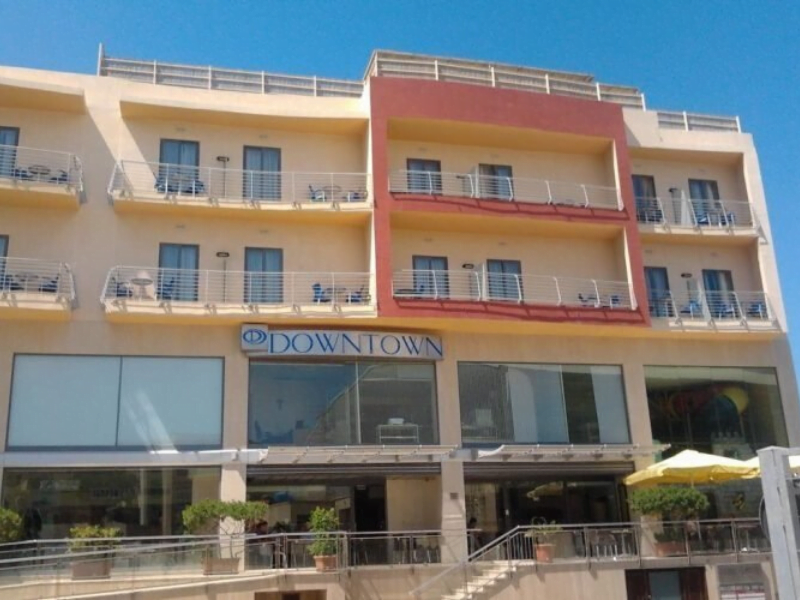Health Minister Chris Fearne has not answered questions on whether he supports the relocation of elderly patients to Downtown Hotel in view of an alternative place described as “ideal” by industry sources.
Fearne also refused to say whether the Health Ministry was involved in negotiations over the contract with Downtown.
The Gozo Ministry’s spokesperson defended the contract, saying that “after market research” the two ministries had decided to “enter into a negotiated procedure with Downtown Ltd.” It has since emerged that the alternative, Lourdes Home, was not even considered.
Dr Fearne’s reticence now leaves Gozo Minister Clint Camilleri further exposed to mounting complaints.
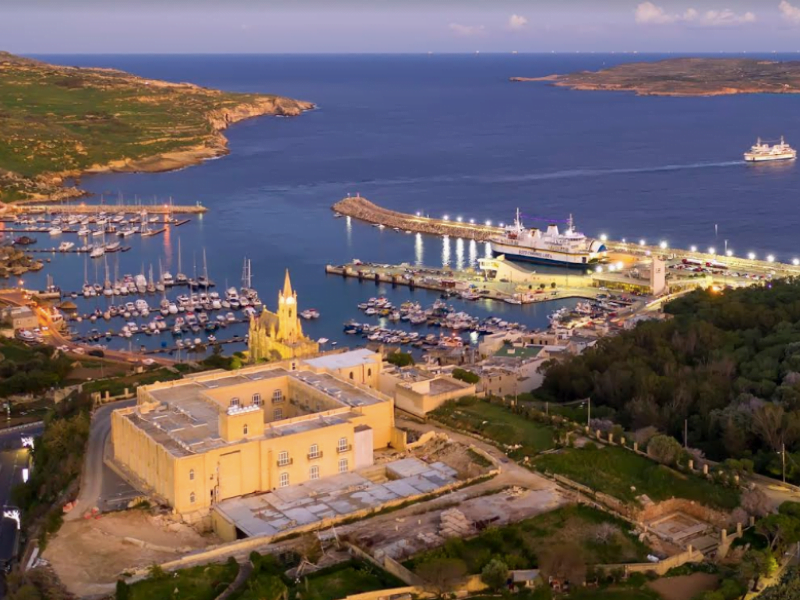
Aerial view of Lourdes Home taken in January 2019.
The contract with Downtown, awarded without being put out to tender, was signed by the permanent secretary of the Gozo Ministry. The hotel is being paid a daily rate of €54.79 per bed space, or €109.58 per room, to house around 80 elderly patients from the hospital’s geriatric wing. The move was intended to free beds at the hospital for potential coronavirus patients.
Downtown, which is owned by a car dealership called SB Autocentre Ltd and Gozitan developer Joseph Portelli, is being paid above market rates, according to industry sources.
The relocation two weeks ago has caused concern for the elderlies’ relatives as well as nurses. Senior sources in Gozo hospital have told The Shift that nurses are disgruntled and indignant at not having been consulted about the premises prior to the move.
Various relatives of the patients have expressed fears that confinement in the hotel’s small premises may affect the patients’ morale and health, especially given their morbidity.
“Every time I call my mother via video link – and I call her at different times of the day – she would be in bed,” a woman who spoke on condition of anonymity told The Shift.
She said that in the St Anna ward at the Gozo hospital she used to be put down in a wheelchair, and sometimes taken outdoors in the grounds for a walk. Another relative made similar claims.
The Gozo hospital is under the management of Steward Health Care, which runs three of Malta’s public hospitals for a payment close to €200,000 a day. Yet the move still had to be handled by the government, at an additional cost to taxpayers.
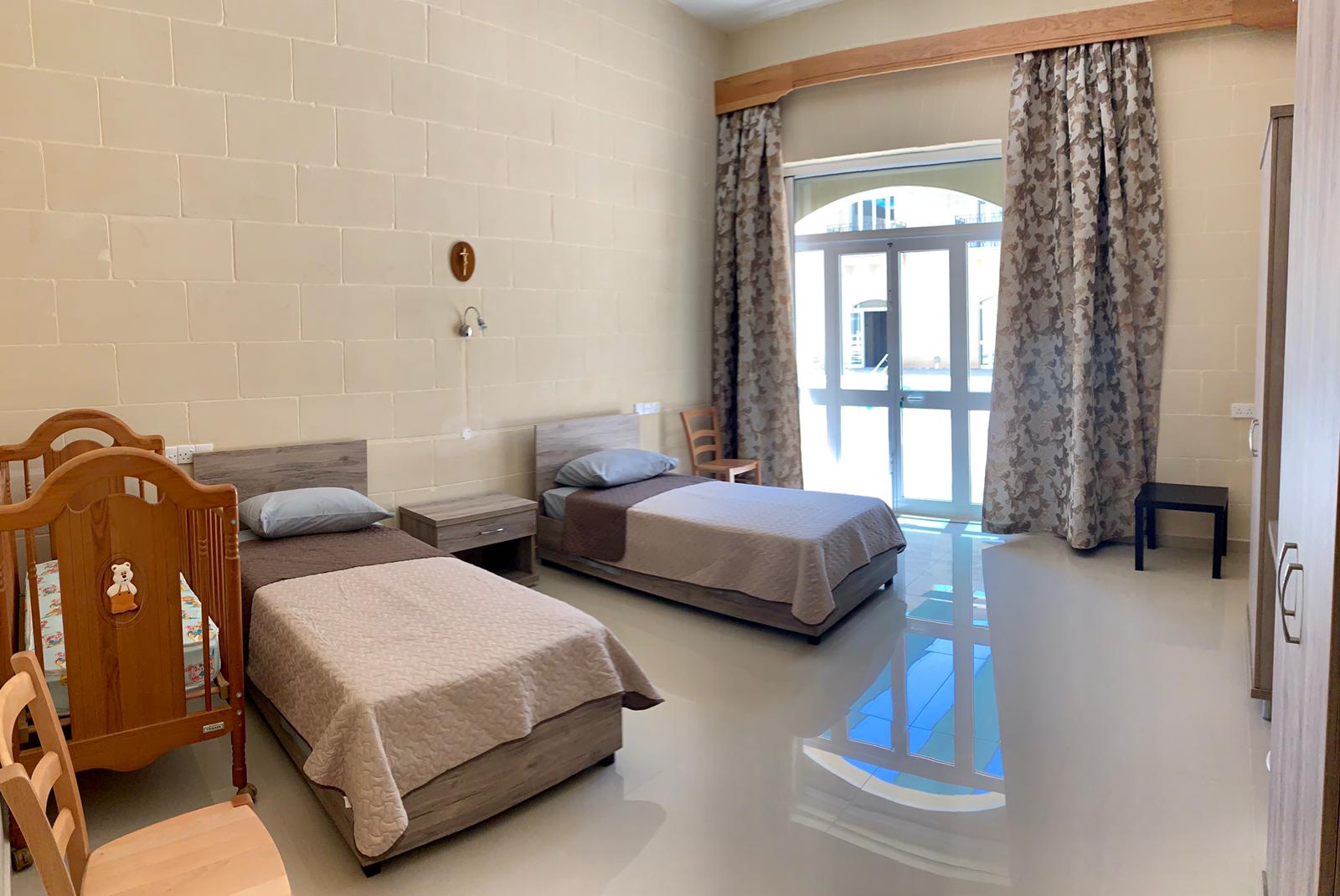
Interior of one room at Lourdes home complete with wardrobe – the facilities outweigh those available at Downtown Hotel.
Chris Galea, who is active in a charity involved in philanthropy among the elderly in Gozo, told The Shift that relatives of patients complained to him that stretchers and coffins did not fit horizontally in the lift, causing anxiety about how bedridden patients can be moved if necessary.
Doubling these patients in a wheelchair or propping them upright to move them would be strenuous given their frailty.
Architectural drawings of Downtown Hotel show two lift wells, the largest of which is 2.08 metres wide by 1.58 metres deep with a doorway less than one metre wide.
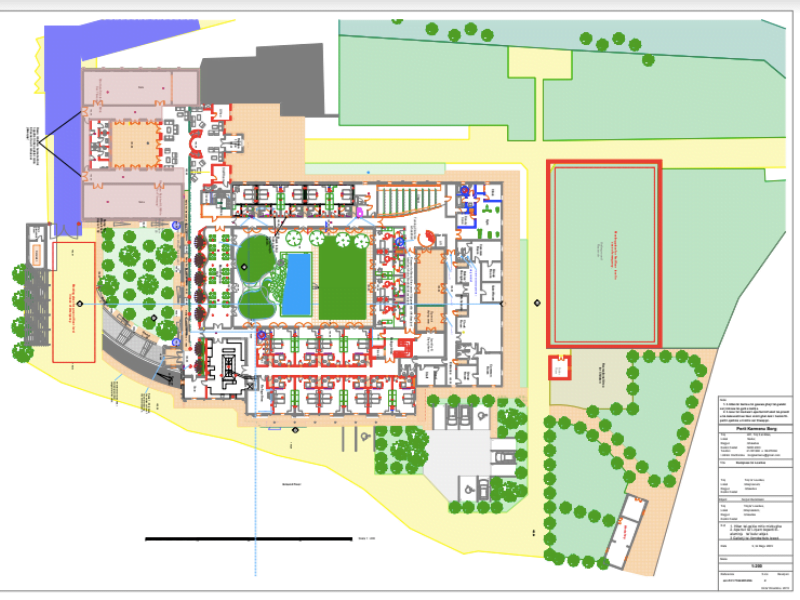
Architectural plan of Lourdes Home.
Downtown does not meet “minimum standards”
Relatives of two other elderly patients who died in the days after the move said they were not given clear answers on how their dead relatives had been moved to the ground floor given the small lifts.
In the policy document Active Ageing called National Minimum Standards for Care Homes for Older People, one measure specifies that a corpse should be moved from the room with the “utmost discretion to ensure that it is not witnessed, as far as possible, by any resident” and “handled with dignity.”
One of the relatives whose grandmother died said that she found the patient that shared the room with her mother sobbing in her bed – there were no privacy screens. Her grandmother also wasn’t “surrounded by [her] personal belongings” as specified in the document. Her belongings had been left at the hospital, where the relative had to go to pick them up.
The other relative said she had been given her mother’s belongings prior to, and in anticipation of, the move to Downtown.
The minimum standards also envisage privacy screens around individual patients in shared rooms – there are two residents in all or most rooms in Downtown – but relatives haven’t seen privacy screens. There were no screens in pictures published by the Gozo Minister last week either.
On the size of rooms, the minimum standards specify “minimum space” for new properties, including new licensees, to be “at least eight square metres of usable floor space per resident” in shared rooms.
Analysis of architectural drawings of Downtown’s rooms shows that less than a fourth of the rooms have a “usable floor space” that reaches 16 square metres – the smallest room is 12 square metres.
Moreover, six of Downtown’s rooms do not have windows that would “enable the resident to see out of it when seated or in bed.”
On the measure of having four square metres of “communal space” per resident – defined as “indoor sitting, recreational and dining space” – the “communal” space available for the elderly at Downtown was less than required, according to sources. This could not be independently verified by The Shift.
The source said that although these minimum standards have yet to be enshrined in law – a Bill presented in 2016 has now been relaunched for public consultation, with some of the measures left out – these standards are being enforced as policies in granting licences.
Social Care Standards Authority investigates itself
A legal notice in late March laid the way for the Social Care Standards Authority (SCSA) to license Steward Health Care to relocate the geriatric patients to Downtown. The law provided for “emergency licence” in “exceptional circumstances” that would “justify the suspension of procedures which would have otherwise been followed.”
The SCSA launched an investigation a month later following an article in The Times of Malta and eventually “confirm[ed] that the premises are adequate and in line with the requirements of an emergency licence.”
The SCSA’s investigation of the premises it had itself licensed only a month earlier raised questions on whether the Authority had assessed the premises before licensing.
After its investigation, the SCSA made recommendations that included “a structured programme of varied activities based on the identified needs of the individual” and provision of “adequate storage space for personal belongings” of each resident.
The SCSA also said that if “the recommendations put forward are not implemented, the Authority would take the necessary action in the best interest of the older persons.”
Such action could include revocation of the “emergency licence”, which can be withdrawn, according to the law, for any “reason deemed necessary at the discretion of the Chief Executive Officer of the Authority.”
Lourdes Home ideal premises for elderly
Perched on a ridge overlooking Mgarr Harbour, a sprawling building belonging to the Dominican nuns has been described as “ideal” premises for the elderly by industry sources.
Site plans show a home spread over 10,000 square metres, larger than a football pitch. The two-storey building – which has an underground car park of 32 bays, including five for wheelchair access – boasts 45 spacious ensuite rooms, as well as lounges, halls, and other common areas, and extensive grounds including swimming pool and gardens. It is fully accessible to the disabled.
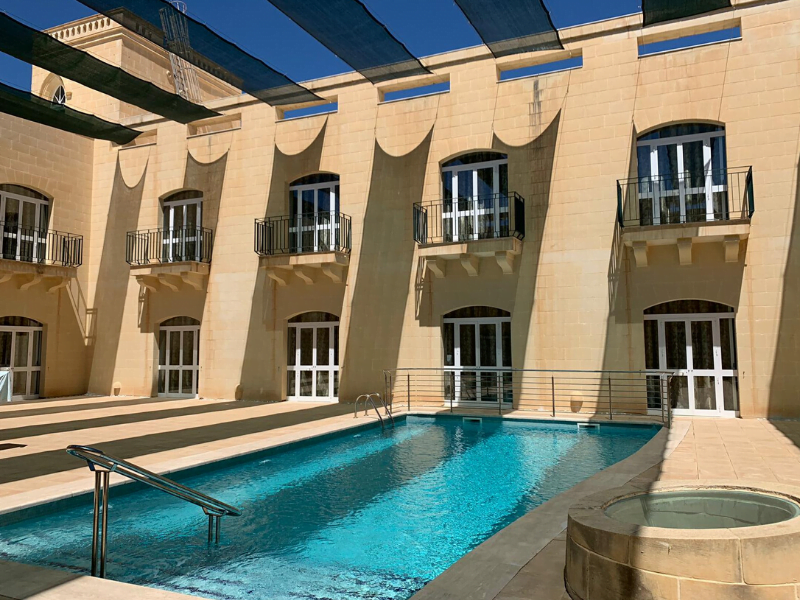
The swimming pool area at Lourdes Home.
It is built on public land that parliament granted to the Dominican nuns on emphyteusis on 27 July 2016 at a ground rent of €500 annually, on condition that the home was exclusively limited to “philanthropic and religious uses”.
Although originally intended as an orphanage in a development application lodged in 2006, health sources in Gozo said the assumption for several years has been that Lourdes Home will become an elderly home.
Nuns at the Dominican’s other convent in Gozo – known as Ta’ Pompei – which functions as an elderly home, have even been telling elderly applicants who they couldn’t previously take in that a new elderly home was under construction at Ta’ Lourdes.
Discussions about having Lourdes Home as an elderly home under a Public Private Partnership were held during the tenure of previous Gozo Minister Justyne Caruana, who resigned last February.
The Dominicans’ Mother Superior, Carmelita Borg, did not specifically answer questions about the talks when contacted.
Lourdes vs Downtown and Fearne’s silence
The answers given by the Gozo Ministry for relocating the elderly patients to Downtown include “proximity” to the hospital, ability to “offer a similar service to St Anna Ward” (the hospital’s geriatric wing), and being a “fully licensed accommodation”.
While Downtown is licensed as a hotel, neither Downtown nor Lourdes have a care home licence. Yet Lourdes has been built in compliance with the minimum standards – licensing would be a formality – while Downtown was conferred an “emergency licence” in “exceptional circumstances” in suspension of normal licensing procedures.
Downtown is across the street from a cluster of schools, and on the same side as buildings stretching up and down the road, while Lourdes is self-contained, with its own access road and surrounded by grounds and countryside. Lourdes currently lies empty.
The Health Minister was asked if he supported the granting of an “emergency licence” to Downtown given that Lourdes Home was not considered. Two emails sent over the span of a week remained unanswered.
The Dominican’s Carmelita Borg was asked if she would have accepted the elderly patients to Lourdes Home if the government had asked. Her lawyer replied to say that the “ifs” make the question and answer both “hypothetical”.

